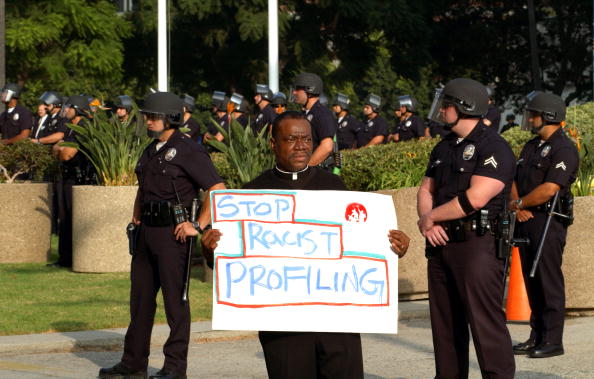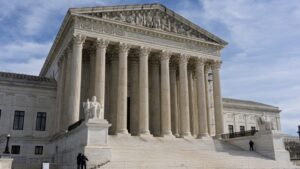In a striking demonstration of power dynamics, recent protests in Los Angeles have been met with a militarized response by the Trump administration, marking a significant escalation in tactics that challenge civil liberties. This development follows nearly five months of actions that many argue break existing legal standards.
Civil rights attorney Judith Browne Dianis, executive director of the Advancement Project, has voiced strong criticism of these measures. She described the heightened response as a grave “threat to our democracy and our communities.”
“As the administration pursues aggressive and dehumanizing methods of immigration enforcement – relying on racial profiling to target those they suspect are immigrants and then kidnapping and deporting them without warrants, legal counsel, or judicial oversight – it is no surprise that communities across the country are standing up in solidarity with our immigrant families, neighbors, friends and coworkers,” Dianis said. “Dissent is being met with flash-bang grenades, tear gas, and military vehicles, as protestors are criminalized and their lives put in danger for exercising their fundamental rights to assemble and speak freely.”
The Republican-controlled Congress has also been active in passing legislation perceived as detrimental to civil liberties. By April 2025, 41 anti-protest bills had been introduced, continuing a trend that began well before the racial justice uprisings of 2020.
The protests against the extensive use of ICE and other federal agencies, including the unlawful deployment of military forces, are part of a broader movement to defend fundamental rights such as due process. The treatment of individuals in these contexts is crucial, and resisting the suppression of these rights is essential for protecting communities affected by systemic oppression.
Know Your Rights & Protect Yourself
Understanding one’s rights is crucial for those participating in protests. Organizations like the Black Alliance for Just Immigration and Free Press have developed resources to help individuals know and safeguard their rights. While these guides are not a replacement for legal counsel, they provide a foundational understanding of the rights at stake.
It is equally important to have a safety plan that goes beyond basic awareness, as detailed by resources like Indivisible.
Stay Alert and Aware
The federal response to protests underscores the importance of remaining vigilant. With heightened government retaliation, staying informed through credible sources is vital to avoid misinformation. The Black Alliance for Just Immigration offers resources to understand the implications of increased law enforcement interactions.
Don’t Believe the Hype
Media outlets often report statements from the Trump administration without sufficient context, which can distort the public’s understanding. It is crucial to critically assess such reports and seek information from diverse sources. The impact of misinformation, such as deep fakes and misleading content, is significant, requiring careful evaluation before sharing. Wired’s podcast “Uncanny Valley” discusses the spread of disinformation related to the Los Angeles protests.
Find Your Place and Plug In
Collective action requires ongoing dedication to defending freedoms. Numerous organizations, including the Advancement Project and the Movement for Black Lives, offer resources for those interested in participating safely and effectively. Media Justice provides guidance on digital security in the face of expansive surveillance initiatives, as highlighted by Truthout.
For those seeking political engagement outside traditional parties, the Working Families Party presents an alternative by developing its own candidates and infrastructure. Meanwhile, the Othering and Belonging Institute at UC Berkeley facilitates webinars and research to foster connections across diverse groups.
Organizations like Critical Resistance are pivotal for individuals interested in exploring prison abolition and opposing the growth of private prisons.
There are many impactful organizations and opportunities to contribute, both locally and nationally. Engaging with one’s community, whether through volunteering or advocacy, is a key step in promoting change.
SEE ALSO:
19 Unforgettable Photos From LA Protests Against ICE






